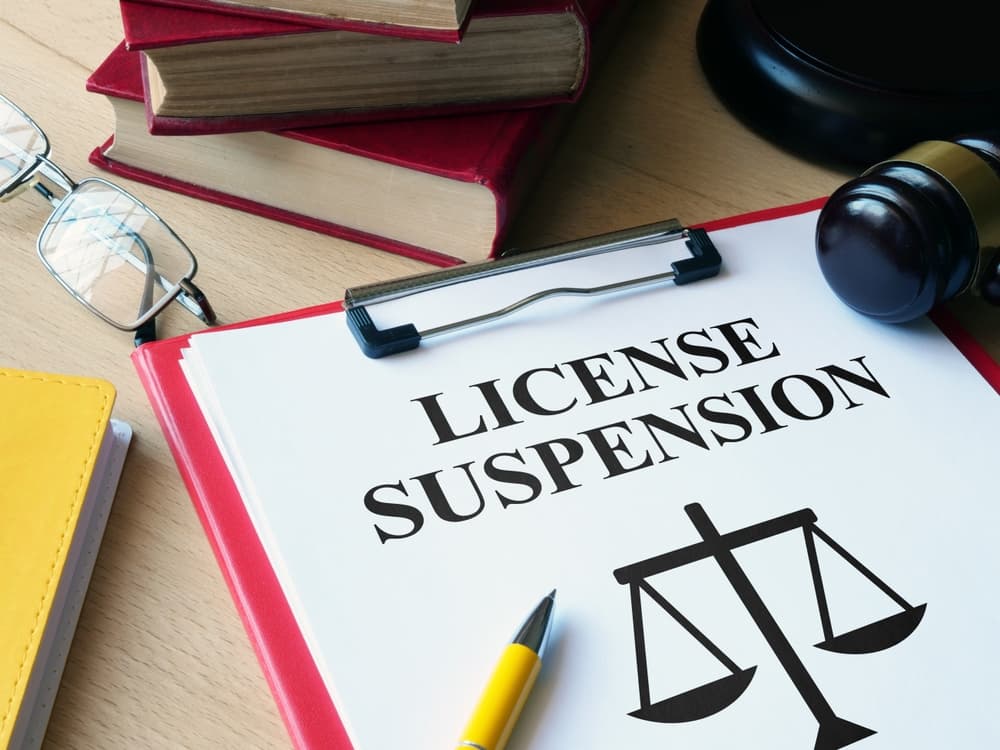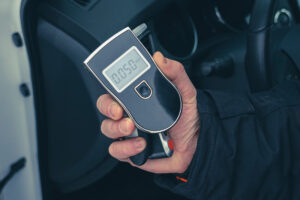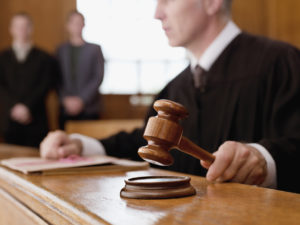Is Your License Suspended Immediately After a DWI?

Being pulled over and arrested for driving while intoxicated, or DWI, is a frightening experience. Your mind is likely racing with questions. What happens next? Will I go to jail? And one of the most urgent questions for many people is: Will I lose my license right now?
For most people, driving is a part of daily life. We need our cars to get to work, take our children to school, and buy groceries. The thought of losing your driving privileges is a huge source of stress. You might be picturing your life coming to a halt.
This article will explain what happens to your driver’s license after a DWI arrest. We’ll cover the two processes that begin after an arrest, the short window you have to act, and how an experienced Los Angeles DWI defense attorney can fight to protect your license.
Authorities place your license at immediate risk, but they don’t suspend it when you get arrested. However, a clock starts ticking immediately, and you must act fast to protect your driving rights.
Key Takeaways
-
After a DWI arrest in Los Angeles, you face two separate cases — one in criminal court and one with the Department of Motor Vehicles (DMV).
-
Your license is not immediately suspended, but you have only 10 days to request a DMV hearing to challenge the administrative suspension.
-
The DMV hearing focuses on whether the arrest was lawful, your BAC level, and if proper testing procedures were followed.
-
Refusing a chemical test can trigger an automatic and longer suspension under California’s implied consent law.
-
A skilled Los Angeles DWI defense attorney can fight both the DMV and court cases, seek dismissal or reduced penalties, and help you apply for a restricted license to keep driving legally.
Two Battles, Not One: The Court and the Motor Vehicle Department
The first thing to understand is that after a DWI arrest, you are facing two separate problems. Each one can cause authorities to suspend your license. This surprises many people who think it’s all one case.
- The Criminal Court Case: This is what most people think of. It involves a prosecutor, a judge, and a courtroom. Prosecutors charge you with a crime. The judge will sentence you if you are guilty of DWI in court. That sentence can include fines, classes, jail time, and a suspension of your driver’s license ordered by the court. The criminal case can take months to resolve.
- The Administrative License Suspension: This process is separate from the court case. The state’s Department of Motor Vehicles (DMV) handles that process. This is not about whether you are guilty of a crime. It is about whether you broke the traffic laws. State law gives the Department of Motor Vehicles the direct power to suspend a license as an administrative action if police arrest you for driving with a blood alcohol level above the legal limit. Authorities move through this process quickly, long before your court case concludes.
Because these two things are separate, winning and losing to the other is possible. You can have your criminal charges dropped, but still have the motor vehicle department suspend your license. You can also be found guilty in court but win the administrative hearing and avoid that first suspension.
This is why having an attorney who knows how to handle both parts of a DWI case is so important. A qualified lawyer understands how to fight for you simultaneously in court and at the motor vehicle department.
The Officer Takes Your License: The Notice of Suspension
When a police officer arrests you for a DWI, they usually confiscate your plastic driver’s license. In its place, they will give you a piece of paper. This paper is your official “Order of Suspension/Revocation.”
This paper does two important things. First, you get a temporary license to drive for 30 days. But the second is the most important: your official notice that the administrative suspension process has started.
The paper clearly states that you have a limited time to challenge the suspension. You have only 10 days from the date of your arrest to contact the Department of Motor Vehicles and request a special hearing, which is called an administrative hearing or a per se hearing.
If you do not request this hearing within the 10-day window, you lose your right to challenge the suspension. It will happen automatically once your 30-day temporary license expires. This is the single biggest mistake people make after a DWI arrest. They wait too long, and then it is too late. The law is very strict on this deadline. Organizations like Mothers Against Drunk Driving (MADD) advocate for these swift administrative laws to ensure public safety. An experienced DWI attorney understands this deadline and can request the hearing for you immediately. It is one of the very first things they will do after you hire them.
The Administrative Hearing: Your First Chance to Fight

The administrative hearing is your opportunity to argue against the license suspension. This hearing does not happen in criminal court. It is usually held at a motor vehicle department office or over the phone. A hearing officer, an employee of the Department, acts as the judge.
The hearing officer cannot decide whether you are good or bad. They are there to decide a few specific factual issues:
- Did the officer have a good reason (probable cause) to pull you over and believe you were driving under the influence?
- Was the arrest you experienced a lawful one?
- Were you driving with a blood alcohol concentration (BAC) at or above the legal limit?
The state’s vehicle laws have specific rules that define what makes a DWI arrest and the related testing lawful. A lawyer will examine the police report and other evidence to see if the officer followed every rule.
At this hearing, your attorney can present evidence and arguments. They can question the police officer. They can challenge the results of the breath or blood test. For example, was the machine that tested your breath working correctly? Was it calibrated recently? Was the person who drew your blood properly trained? The National Highway Traffic Safety Administration (NHTSA) sets standards and provides research on these testing methods, and a good DWI defense lawyer knows how to verify that they followed those standards.
These details can make a huge difference. If your lawyer can show that one of these points is false, the hearing officer may “set aside” the suspension. This means you win the administrative hearing, and the motor vehicle department does not suspend your license. This is a huge victory. It does not mean your criminal case is over, but it is a positive step. Hiring a lawyer to handle this hearing gives you the best chance to find these small but powerful details.
What if You Refused the Chemical Test?

The rules differ if you refuse to take a breath or blood test after arrest. When you get a driver’s license, you give “implied consent.” You have already agreed to submit to a chemical test when police lawfully arrest you for a DWI.
If you refuse, the penalty is often more severe. The law states that refusing to submit to a test will trigger a longer license suspension, often a full year or more for a first offense. And during this time, you cannot get a restricted license.
Even if you refused the test, you should hire a lawyer immediately. An attorney can still challenge the suspension. They can argue that the officer did not properly explain the consequences of refusing. Or they can argue that the arrest itself was not unlawful. This is not a situation to handle on your own.
The Criminal Court Case and Your License

While the administrative process is happening, your criminal case is moving forward separately. After a DWI conviction, the judge sentences you in court. This sentence will almost always include another license suspension.
This court-ordered suspension is separate from the Department of Motor Vehicles’ administrative suspension. Sometimes, they can run at the same time. The length of the court suspension depends on the specifics of your case and whether you have any prior DWI convictions.
This is another area in which a good DWI lawyer is important. Your attorney’s goal in the criminal case is to get the best possible outcome. This can mean:
Getting the Charges Dismissed Completely
The best possible result in any criminal case is getting it dismissed. A dismissal means the case is over. The prosecutor drops the charges, letting you walk away with no conviction on your record. This doesn’t happen by magic. It happens when a skilled lawyer finds a major flaw in the prosecutor’s case against you.
An experienced attorney knows exactly what to look for. They will start by reviewing every detail of your arrest. For example, did the police officer have a legal reason to pull you over in the first place? An officer cannot stop a car just on a hunch; they need a specific reason, like seeing you swerve or break a traffic law. When your lawyer proves the initial stop was illegal, the court throws out all evidence found afterward. This is often enough to get the entire case dismissed.
Your attorney will also look very closely at the evidence itself. Was the breathalyzer machine working right? These devices need regular maintenance and calibration to be accurate. If they are not cared for properly, their results can be wrong. A lawyer can get the machine’s records to check for any problems.
Similarly, if you took a blood test, your lawyer will examine how the lab handled the sample. Was it drawn correctly? Was it stored in a way that prevented contamination? When mistakes occur in the chain of custody, your attorney can argue that the results are unreliable. If a judge agrees that key evidence is unreliable, the prosecutor may not have enough proof to move forward, forcing them to drop the charges.
Negotiating for a Better Outcome
Sometimes, the evidence against you might be strong, and getting the case dismissed completely is impossible. In this situation, the next best goal is to reduce the damage as much as possible.
This is where a lawyer’s ability to negotiate comes in. An attorney can talk to the prosecutor to work out a “plea agreement” or a “plea bargain.” This is a deal to have you plead guilty to a less serious charge in exchange for lighter penalties. A good lawyer does not get a deal just by asking. They use leverage by pointing out the weak spots in the prosecutor’s case.
Fighting for You at Trial
If the prosecutor is unwilling to offer a fair deal, and you and your lawyer believe you have a good chance to win, your case may go to trial. A trial is where your DWI defense attorney will fight for you in front of a judge or a jury. Going to trial can be stressful, but with a skilled trial lawyer, it is your chance to be found “not guilty.”
The prosecutor’s job at trial is to prove you are guilty “beyond a reasonable doubt.” This is a very high standard to meet. It means they must present evidence that is so convincing that there is no other logical explanation for what happened. Your lawyer’s job is to show that there is a reasonable doubt. They do not have to prove you are innocent. They only have to show that the prosecutor’s story has holes.
Getting a Restricted License
What if your license does get suspended, either by the motor vehicle department or the court? Does that mean you absolutely cannot drive? Not always.
In many cases, you can apply for a restricted license. This license allows you to drive to and from certain places, like work, school, and your DWI classes. This is a lifesaver for many people, allowing them to keep their jobs and handle their responsibilities.
To get a restricted license, you usually have to do a few things:
- Serve a “hard suspension” period first (a certain number of days you cannot drive).
- Enroll in a state-approved DWI education program.
- Get special car insurance, often called an SR-22.
- Pay a fee to have your license reissued.
- You will often be required to install an ignition interlock device (IID) in your car. This is a small breathalyzer that you must blow into before your car will start.
The state’s vehicle code details the requirements for installing an ignition interlock device and who is eligible. The rules for IIDs can be confusing. For example, data from the Centers for Disease Control and Prevention (CDC) shows that these devices reduce repeat offenses, which is why they are so commonly required. A DWI defense attorney can explain whether you’re eligible for a restricted license and guide you through securing one. They can ensure you complete the right paperwork and meet all the deadlines.
Do Not Try to Face a DWI Charge Alone
Do not try to face a DWI charge alone. The stakes are too high. Your freedom, finances, and ability to drive are all on the line. After an arrest, you have only 10 days to act to protect your license. Contact a qualified criminal trial lawyer immediately. They can request the critical administrative hearing for you and start building a defense for your administrative and criminal cases, giving you the best chance to keep your life moving forward.


